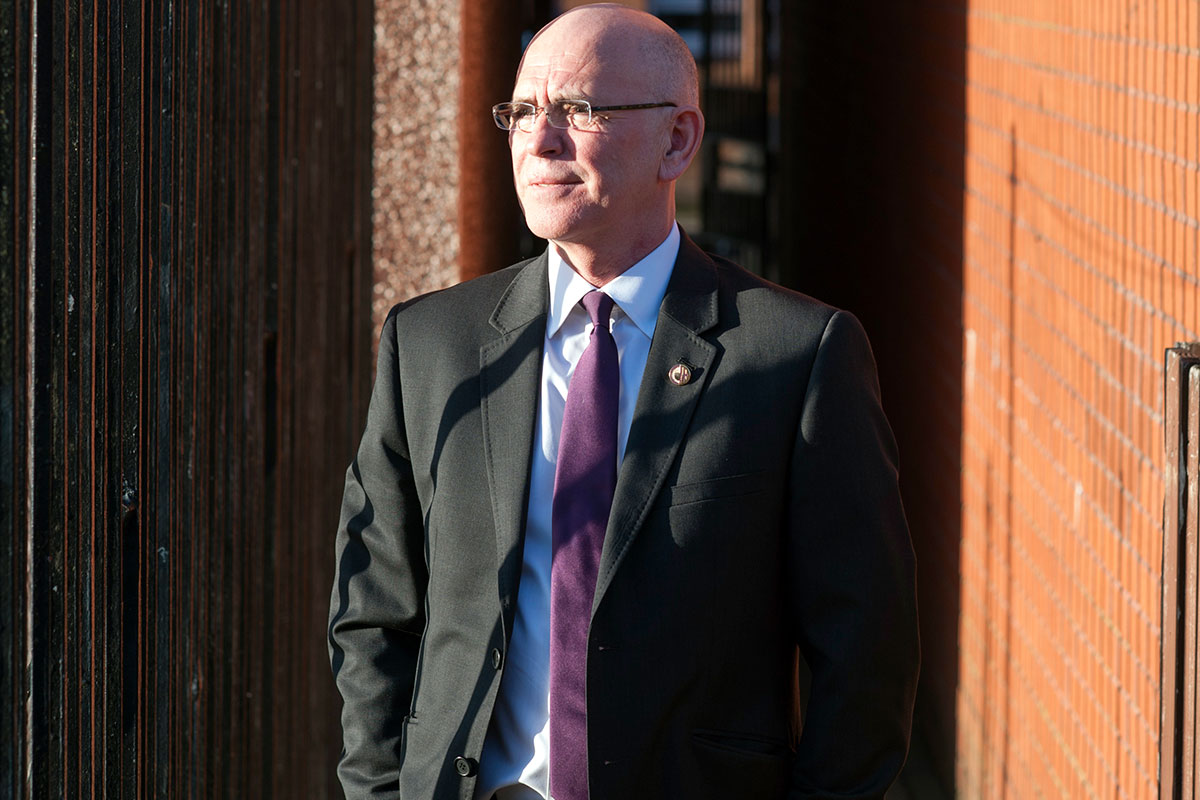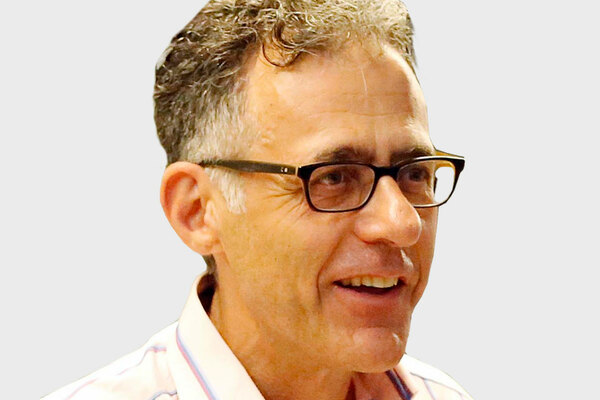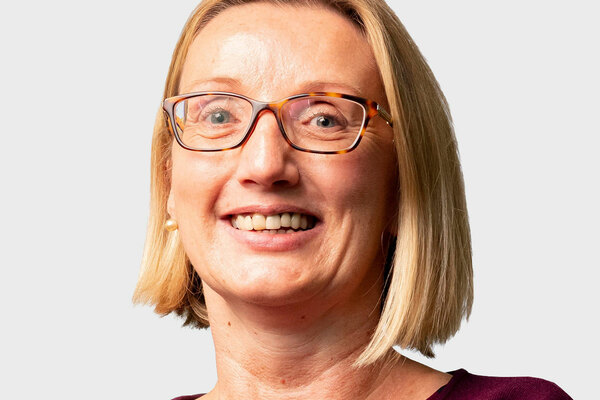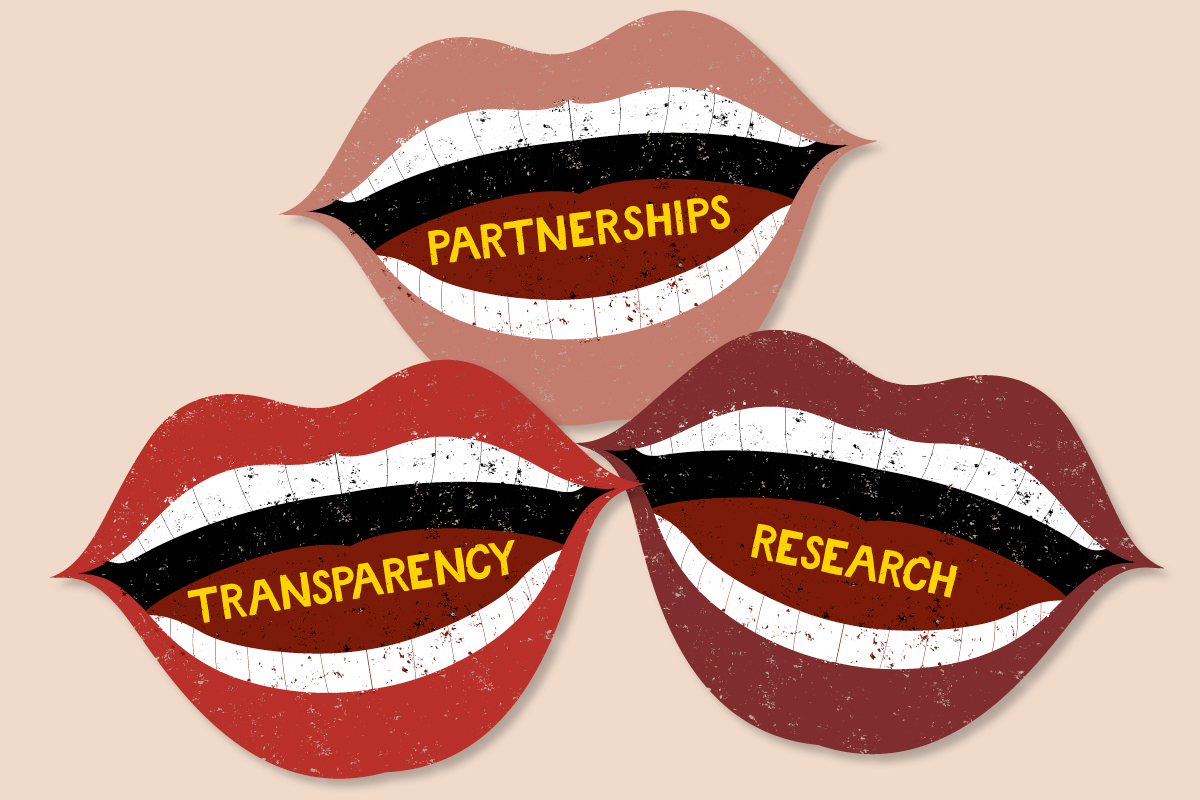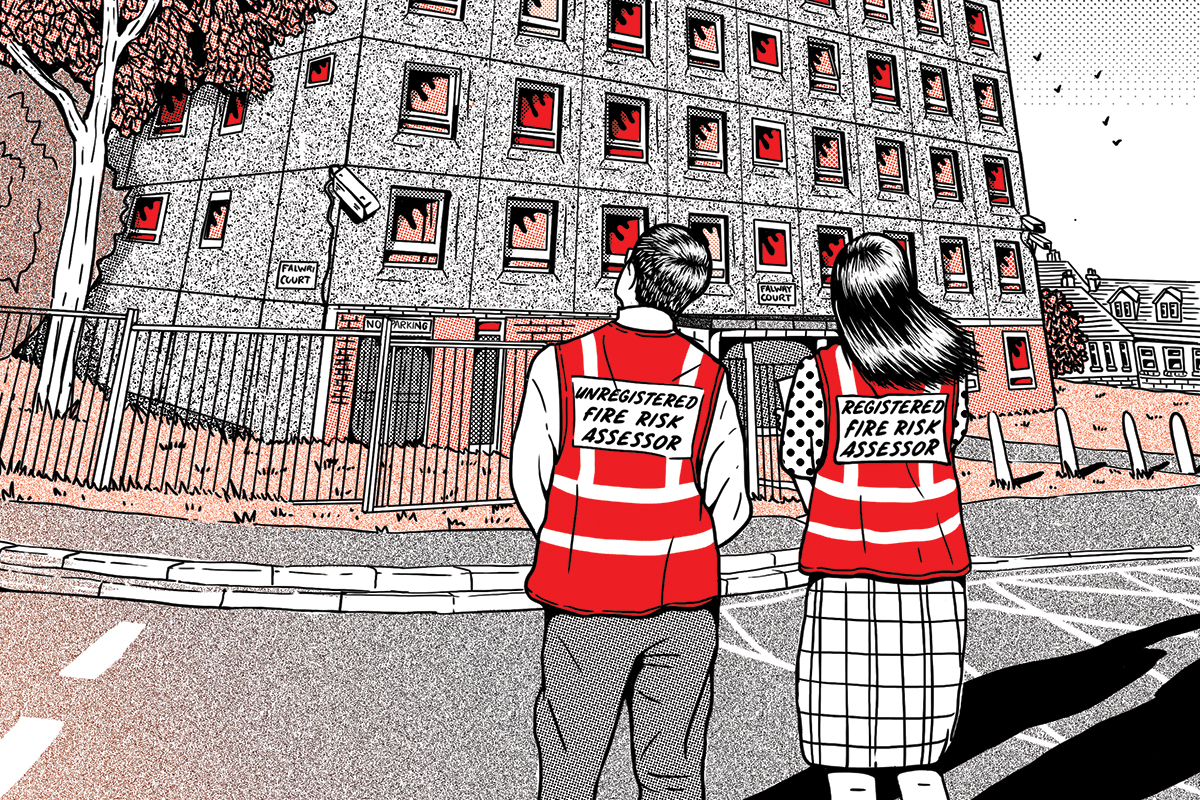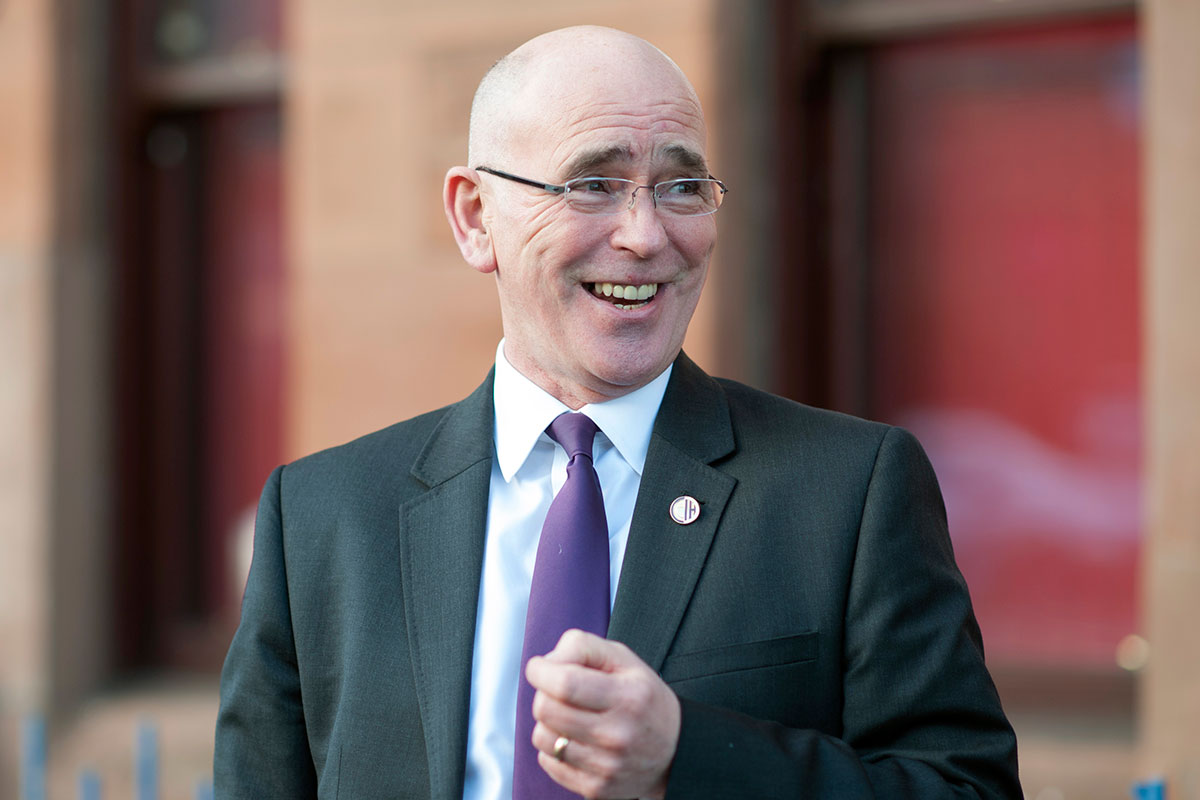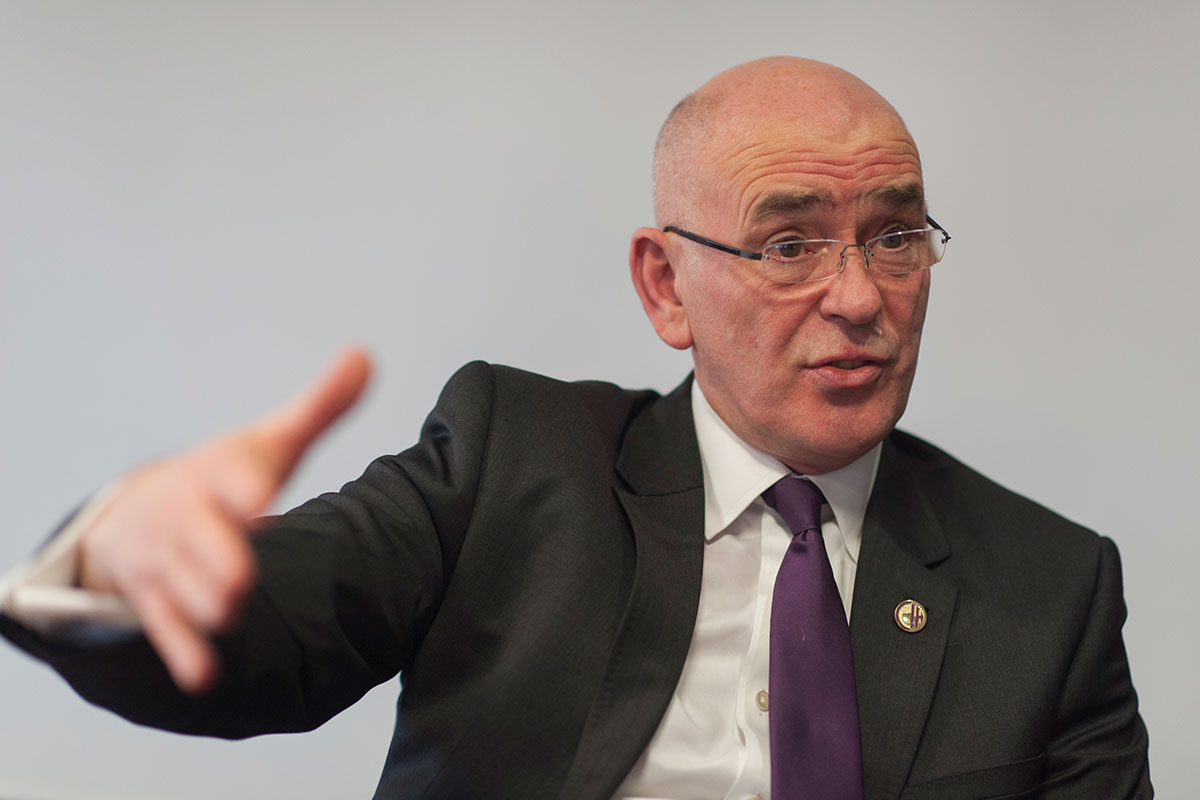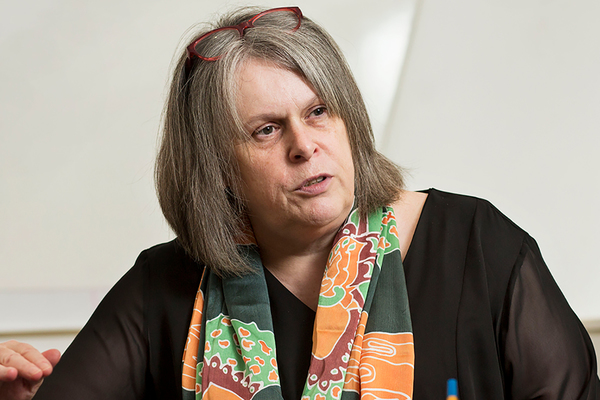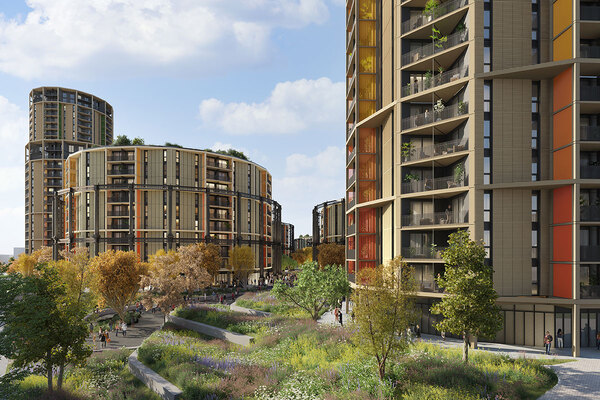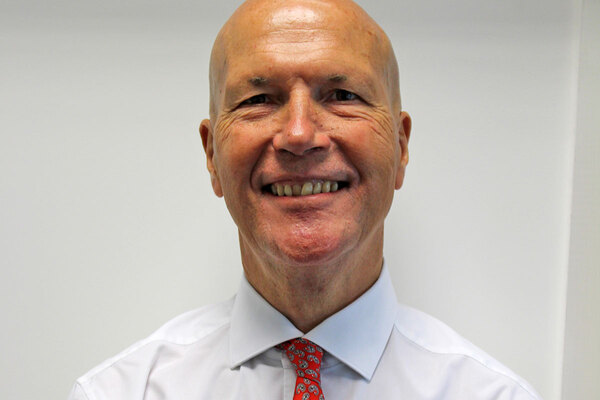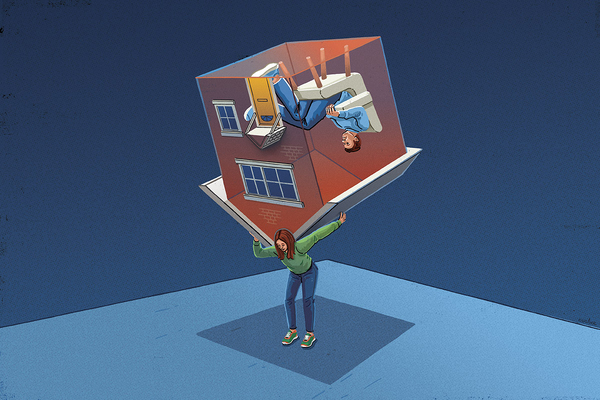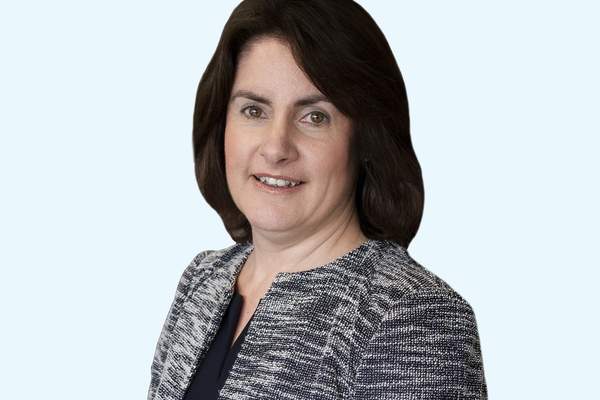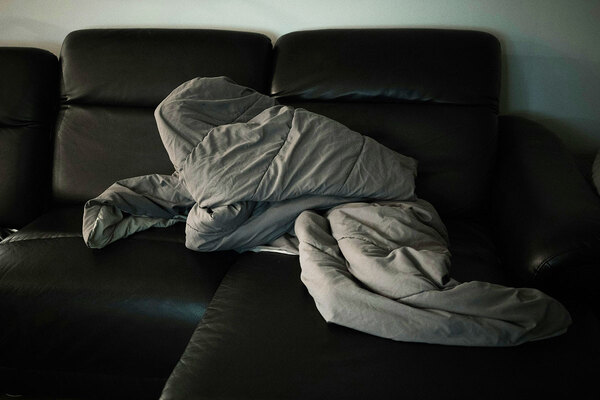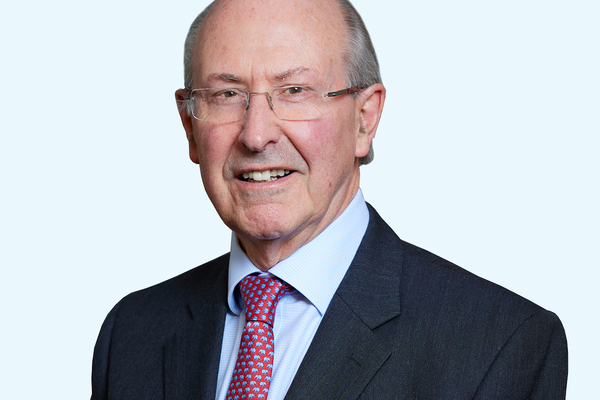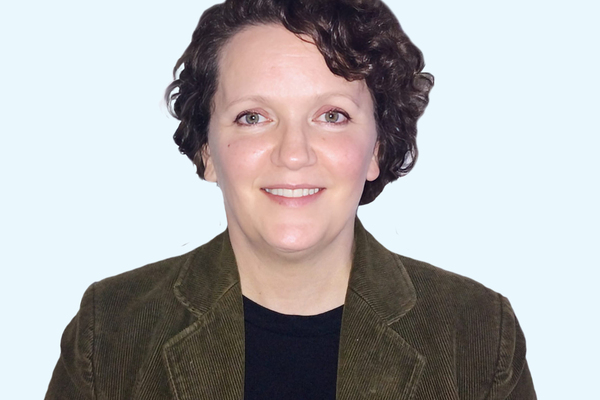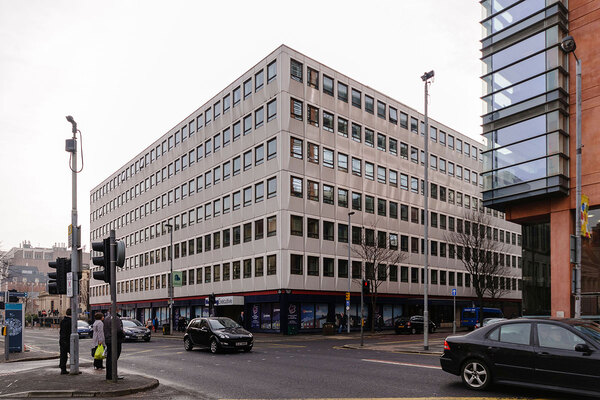Jim Strang: ‘Why tackling domestic abuse is at the centre of my CIH presidential year’
New Chartered Institute of Housing president Jim Strang opens up about the reasons for his continuation of the Make a Stand campaign to tackle domestic abuse, and explains to Martin Hilditch what his plans are. Photography: Martin Hunter
There can’t be many presidents in the history of the Chartered Institute of Housing (CIH) who have been more passionate about the role than Jim Strang.
“I would walk on hot coals to serve the profession that has given me so much,” he asserts with feeling. The 62-year-old chief executive of Glasgow’s Parkhead Housing Association began his year-long presidential term last November.
Frankly, it’s impressive that he has taken up the position at all. Less than a year ago, he suffered a stroke that caused him to lose the power of speech and movement down one side of his body.
His son, Andrew, saved his life after driving him straight to hospital when he started complaining of double vision. “In the car, I deteriorated quite badly,” he recalls. “I honestly thought I was dying. I had this terrible feeling that my life force was ebbing away.”
Less than a year ago, Mr Strang suffered a stroke that caused him to lose the power of speech and movement down one side of his body
Unconscious by the time he arrived at hospital – “the boy carried me on his shoulders into the A&E” – Mr Strang came round the following morning. One of his first worries was about a speaking engagement he had in Wales the next day, as part of his then-role as vice-president of the CIH.
“The only thing I could think of was, ‘I’m due in Cardiff tomorrow’,” he says with a self-deprecating smile.
His wife later confided that during his recovery one of her fears was that he might not be able to do his year as president, because he was so looking forward to it.
Did he ever consider standing down as president during his recovery? “Oh God, no.”
This, then, is the story of a man who is “housing through and through” with a dash of “bloody-mindedness”, according to Alison Inman, Mr Strang’s immediate predecessor as CIH president.
It is also about someone who has deeply personal reasons for wanting to take on the role in order to continue the campaign to tackle domestic abuse – Make a Stand – that Ms Inman launched during her presidential year.
Mr Strang is certainly an open book. Practically every inch of wall space in his cosy office – lit by desktop lamps that wouldn’t look out of place in a show home – is covered by framed pictures and illustrations, all of which have a personal story behind them.
“That’s Coire Lagan [on the Isle of Skye],” he says, pointing at one photo of stunning Scottish scenery. “That is the finest place on Earth. My son has agreed he will scatter my ashes on that very rock.”
His determination to continue the campaign Ms Inman started during her presidency has seen him open up publicly about his family’s horrendous experience of violence at the hands of his father. He decided to make the issue the central focus of his presidency “there and then” when he was in the audience to hear a speech Ms Inman made in Edinburgh about domestic abuse.
“She started talking about it and, I swear to God, I was sitting there and I couldn’t hear anything round about me,” he says. “I could just hear Alison’s voice and the memories started coming back.”
Those memories took him straight back to the weekends of his childhood in Yoker, north-west Glasgow.
“I’ve got an aversion to tripe and onions because every Saturday night my mother had to make them when he was in the pub. The house used to be filled with the smell.
"My brother and wee sister and me would help my mother polish the lino. And we knew what was going to happen when he came back from the pub. It wasn’t a one-off thing.”
“I remember when my father gave me my first grown-up doing; I was nine at the time. And a grown-up doing from my father was on the deck, putting the boot in”
The violence “blighted my early life”, Mr Strang says. “But I had buried it. I’d hidden it. I’d put it all behind me because I didn’t want it distorting things as I grew up and getting in the way. But when Alison started speaking, oh my God, it came flooding back. The smell of tripe and onions. The smell of whisky. Cheap wine. I remember when my father gave me my first grown-up doing; I was nine at the time. And a grown-up doing from my father was on the deck, putting the boot in. That was my first; it wasn’t the last.”
Since Ms Inman’s speech, he has spoken about his own experiences on public platforms a number of times. Does he ever regret opening up about it? “No,” he says with obvious emotion. “Not at all. It has made me stronger.
"It has made me more self-confident, because I can see that it is much more on the agenda.” As an example he cites a meeting he and Dr Marsha Scott, chief executive of Scottish Women’s Aid, had planned with the Scottish housing minister later in the week “to find out what the Scottish government can do to help us with this”.
“Would we have got that if we hadn’t raised the profile? The answer to that would be no.”
Equally, he believes that speaking about his experience in public has prompted other people to open up, too. “I say to men who approach me, ‘Stand up and be counted’,” he continues. “We are the solution, because we are [predominantly] the cause.”
Apart from raising lots of money for Women’s Aid, Mr Strang says his goal for his presidential year is to get every social landlord in the country signed up to the CIH’s Make a Stand campaign.
It asks social landlords to put a policy in place to support residents affected by domestic abuse and to appoint a champion at a senior level to own the activity being done to support them. On top of getting signatures, he wants to make sure that those who have signed up are “walking the talk”. “It is not just about getting a certificate and putting it on your wall or website saying how wonderful we are,” he explains.
Mr Strang is certainly a big believer in the difference that individuals can make – and there are reminders of this throughout Parkhead’s offices.
A picture of Mary Barbour, who led protests by thousands of women against rent increases in the Glasgow tenements during World War I that resulted in new rent controls, hangs in the organisation’s boardroom along with a likeness of John Wheatley, the Labour politician whose 1924 Housing Act saw central government provide subsidies to build public housing.
“They were changemakers,” Mr Strang says. “With the right leadership and the right approach, we can again gain significant change, particularly in housing.”
He cites the scrapping of the Right to Buy in Scotland – a once seemingly untouchable policy – as an example. England should follow and “consign it to the dustbin because of the damage it has done,” he adds.
A particular priority for the UK government should be the construction of more homes at social rent levels, he states. If Mr Strang had drafted last year’s Social Housing Green Paper it would have been “totally different” when it comes to social housing, he says.
The number homes for social rent completed in England last year – 990 – is “an absolute disgrace”, he states. He has similar thoughts about Universal Credit, which he sees largely as an attempt at “solving austerity on the backs of poor people”.
All of the above demonstrates that Mr Strang has imbued much of the campaigning spirit from his housing heroes.
The number of homes for social rent completed in England last year – 990 – is “an absolute disgrace”, Mr Strang states
Indeed, he cites the campaign to stop Serco from repossessing more than 300 homes in Glasgow, where tenants’ application for asylum had been refused, as a highlight of his time as CIH vice-president. Many of the homes were leased from housing associations.
“I got involved,” he says. “The CIH got involved [along with other housing organisations]. I actually spoke at a rally outside their offices. Basically we said, ‘We cannot stand idly by and allow folk like asylum seekers to suffer. We are not going to do that as a sector’.” The evictions are currently on hold pending a legal process, and Mr Strang is convinced that had various groups not acted, they would have gone ahead. “That is the power of the housing sector,” he declares.
Clearly there’s not going to be any shortage of drive or commitment from Mr Strang this year.
“It is not just about wearing the presidential chain,” he says. “It is about being able to make something tangible.” Social landlords can, of course, help him out by signing up to the Make a Stand campaign.
Beyond that, Mr Strang says that if over the next year he can influence politicians to “get off their high horse” and build more social housing “then when I do eventually retire, I would be able to say, ‘That was a job well done’”. If he succeeds, then it might be time to hang a likeness of a new campaigner alongside Ms Barbour and Mr Wheatley in Parkhead’s boardroom.
Make a Stand
The ‘Make a Stand’ pledge has been developed by CIH in partnership with Women’s Aid and the Domestic Abuse Housing Alliance (DAHA) – made up of Standing Together Against Domestic Violence, Peabody and Gentoo. It was launched under the CIH presidency of Alison Inman in 2018, and then continued by her successor as president Jim Strang.
As of 6 February 2018, 300 organisations had signed up.
As part of the pledge, housing organisations can make four commitments to support people who live and work in housing who are experiencing domestic abuse.
These four commitments are:
* To put in place and embed a policy to support residents who are experiencing domestic abuse
* To make information about national and local domestic abuse support services available on your website and in other places which are easily accessible to residents and staff
* To put in place a HR policy and procedure on domestic abuse, or to incorporate this into an existing policy, to support members of staff who are experiencing domestic abuse
* Appoint a champion in your organisation to own the activity you are doing to support people experiencing domestic abuse
Click here to read a piece by former CIH president Alison Inman explaining more about the campaign
